Cost of living: The small businesses closing due to price rises
- Published
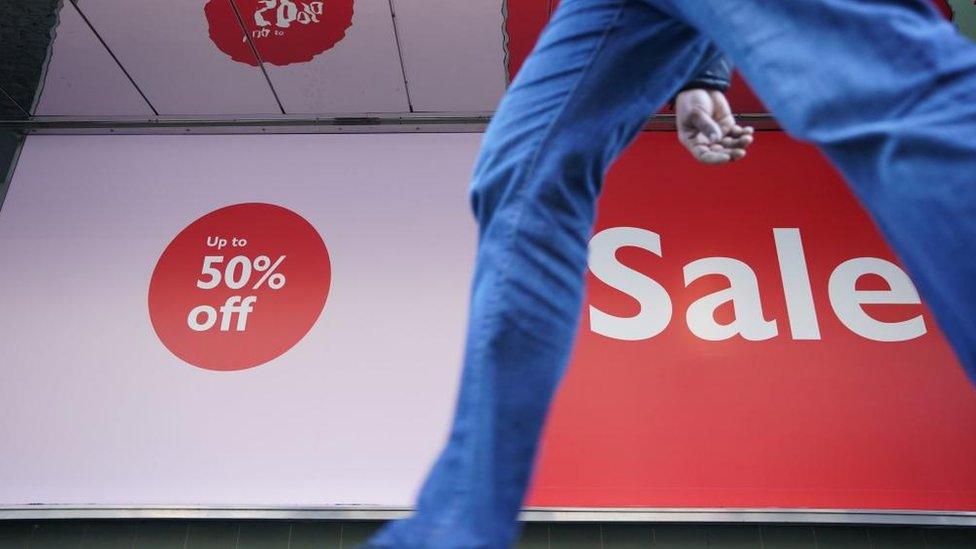
The Federation of Small Businesses says quarter of small firms plan to close, downsize, or change their business model when government support on energy bills changes in April
Small businesses say they are having to shut their doors or scale back due to rising costs. They say they are finding it difficult to pass on their price increases to customers, which are hitting their profits. What pressures do they face and can anything be done to help them?

'I can't carry on like this'
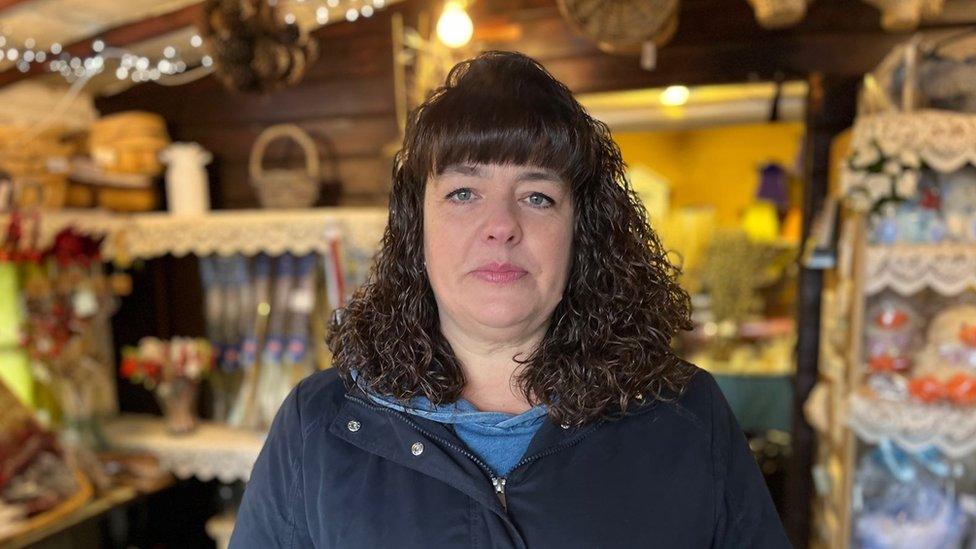
Florist Natalie Southgate closed her business after 23 years
Natalie Southgate closed her business, Flowers by Natalie in Norwich, on Saturday.
She founded the florists more than 23 years ago and had been running it ever since.
The 52-year-old says: "I had been keeping an eye on takings and it dropped off from September.
"We got to Christmas and I was down by about 50 to 60%. There was a horrible moment when I just thought 'oh my God, I can't carry on like this'."
She says the downturn in trade caused issues ordering flowers and a reduction in the number of flower growers in Holland pushed up wholesale prices.
Her electricity costs also increased from £1,500 per year to about £4,000.
She says: "The industry is so volatile at the moment but it's not just florists, I think it's across the board.
"I have had a lot of sleepless nights about it, especially leading up to Christmas.
"I was thinking 'surely it will get better than this'. It did get busier but not as busy as it should have been.
"I looked at all options but it's just not viable to pass on all the cost increases as no-one would be able to pay for the flowers.
"I've cried a lot of tears and used boxes of tissues wiping my eyes recently," she added.

'Work hard for less money'
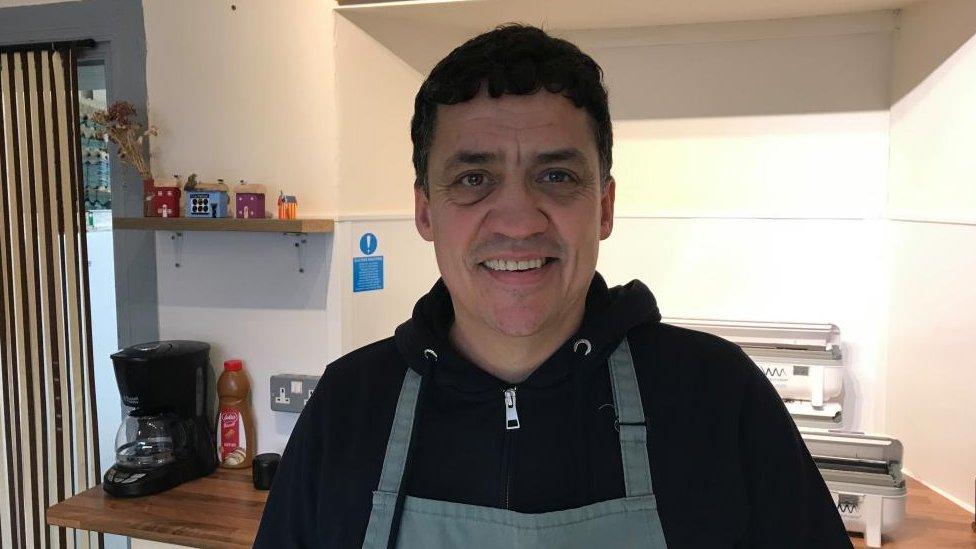
Deli owner Gary Bradshaw has closed one shop and paused recruitment due to rising costs
Gary Bradshaw owns Hamm Tun Fine Foods, making cheese and running a delicatessen in Long Buckby, Northamptonshire.
But in September he closed his second shop - and cafe - in the village of Whittlebury, near Silverstone.
He says he "wasn't making enough money out of it, the margins were shrinking, costs were rising".
"There comes a point where you can't put your prices up beyond a certain point and you just aren't making money," he says.
Mr Bradshaw says the Whittlebury branch was "profitable for six months" before the impact of rising costs.
He says: "Costs have just gone through the roof, the cost of our ingredients and food, some of it has doubled, some of it gone up by 20-25%."
The Long Buckby branch and the cheesemaking will continue, but he says the business will "tread water" this year.
He says his electricity bill for the cheese factory has gone from £350 to £900 a month.
"We'll just have to work hard for less money. We can't put our prices up much more because there comes a point where people will just stop coming in the shop," he says.
The business was looking to hire someone to help with the cheesemaking and buy a new fridge for the deli but he says that is now "on hold".

'Very bleak picture'
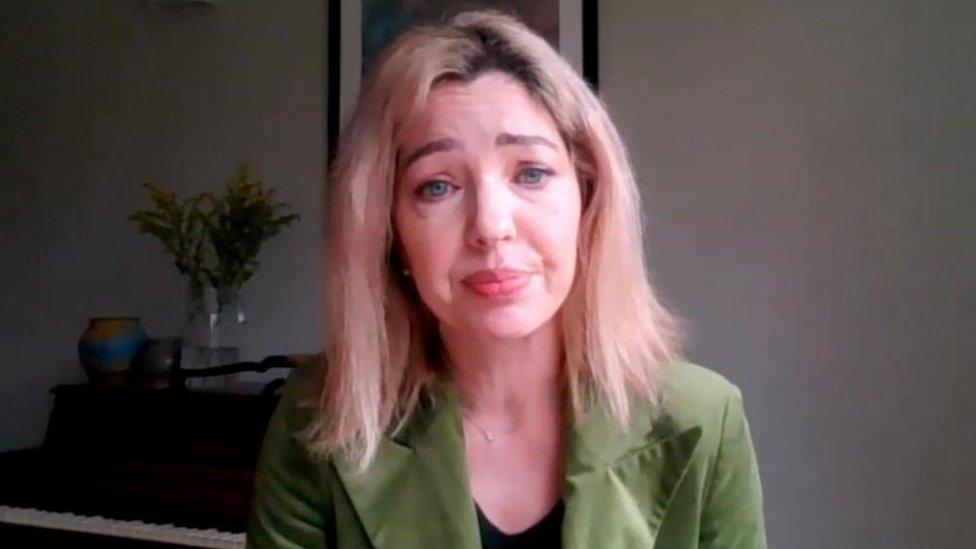
Candy Richard, of the Federation of Small Businesses, says costs are rising and consumers are spending less
Candy Richards, from the Federation of Small Businesses in the East (CSB) says many small businesses in the region are being "pushed to the brink".
She says: "These are businesses that weren't struggling before, these are productive and profitable businesses that are seeing energy costs spiral, seeing inflation rise across the board, and for many it just doesn't make sense to carry on because the sums do not add up."
Ms Richards says businesses are telling her "the situation is far worse than Covid".
"There is such a level of uncertainty and consumers are so nervous about spending, consumers have less in the pockets to spend," she says.
She says there is a "very bleak picture" for small businesses and urged the government to provide more support, especially for energy bills.

'As much support as we are able'
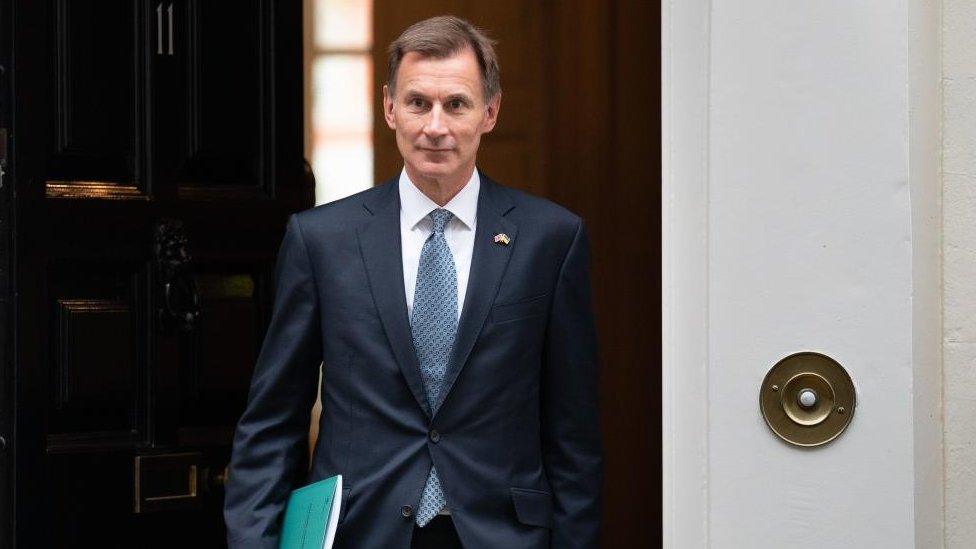
Chancellor Jeremy Hunt says the government is helping as much as it can
The current scheme which caps the unit cost of gas and electricity for all businesses expires at the end of March.
Last week, the government announced a new scheme, where firms will get a discount on wholesale prices, will run until the end of March 2024.
Heavy energy-using sectors, like glass, ceramics and steelmakers, will get a larger discount than others but firms will only benefit from the scheme when energy bills are high.
Chancellor Jeremy Hunt says: "My top priority is tackling the rising cost of living - something that both families and businesses are struggling with.
"That means taking difficult decisions to bring down inflation while giving as much support to families and business as we are able."

Find BBC News: East of England on Facebook, external, Instagram, external and Twitter, external. If you have a story suggestion email eastofenglandnews@bbc.co.uk, external
Related topics
- Published10 January 2023
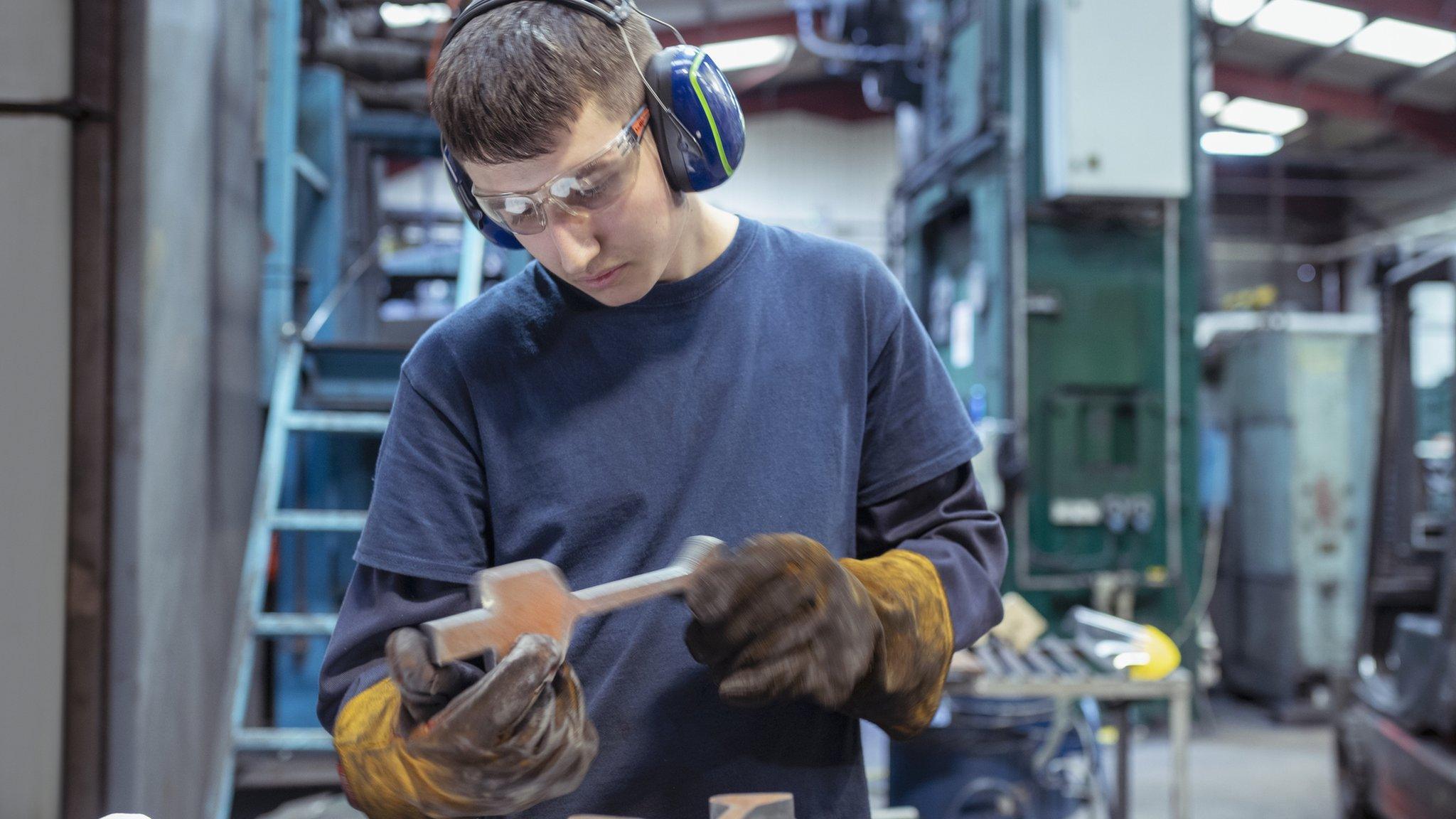
- Published9 January 2023
- Published3 January 2023
